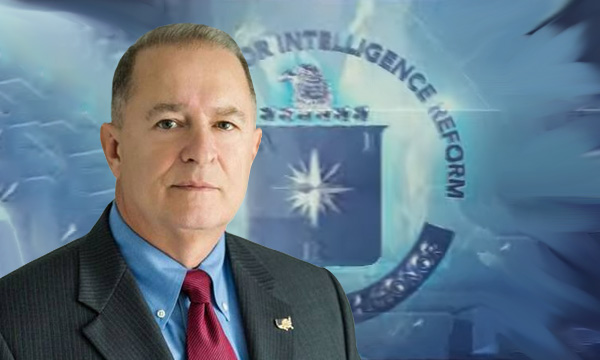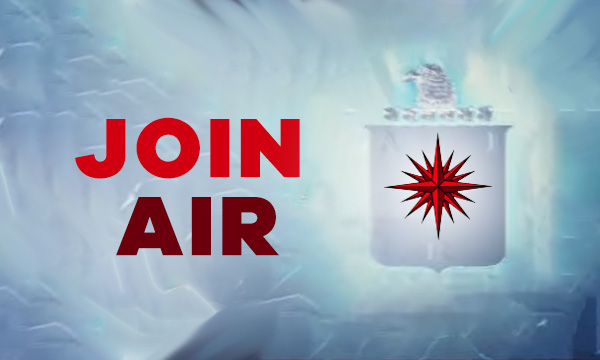Voice of America reported organizational re-grouping of the Taliban. Their forces now grow steadily. Brad Johnson, retired CIA Chief of Station, discusses the organization as it is today and their PR campaign “Hearts and Minds.” Will they use terrorist tactics again?
[expander_maker id=”8″ more=”Click for entire transcript” less=”Read less”]
brad johnson for americans for
00:02
intelligence reform it is
00:03
uh march 4th 2021. uh kind of an
00:07
interesting speech got was recently
00:08
reported by voice of america it was
00:10
something that had surfaced
00:12
uh by the number two guy haqqani of of
00:14
the taliban and
00:16
he’s kind of one of the hardcore guys
00:18
one of the leaders his network is kind
00:20
of one of the
00:21
uh tougher ones out of the out of
00:23
taliban
00:24
a couple of take-home things out of that
00:26
uh
00:27
it it first and foremost shows a certain
00:31
uh organizational resurgence on the part
00:33
of taliban
00:34
they’re centered in afghanistan they’ve
00:36
always been there they were never
00:38
completely eradicated
00:39
although they were really down to the
00:41
nubs there for a while
00:42
uh but with uh with essentially us
00:45
kind of pulling out and now uh kind of
00:48
withdrawing from counter-terrorism
00:50
efforts which
00:52
you know interesting decision that
00:54
turned out to be that’s going to bite us
00:56
in the rear
00:57
and this is how and you’re seeing this
00:59
resurgence of taliban and without the
01:01
counter terrorism
01:02
operations to keep them uh you know down
01:05
um they’re they’re they’re going to go
01:06
back into operations and some of those
01:08
things are certainly going to be
01:10
targeting americans so um that’s that’s
01:13
really the main take home out of this
01:15
speech
01:16
it’s it’s rare for anyone other than the
01:18
number one
01:19
guy to do the speaking for taliban and
01:21
have the number two guy come out like i
01:23
said
01:23
this is all kind of interesting it’s a
01:25
show of
01:27
organizational force i would say the
01:29
other thing he does
01:30
in this is he and interesting that they
01:32
publish this but what he does is he kind
01:34
of goes into a uh
01:36
he rangs harangues him a little bit like
01:38
a boss at work sort of thing
01:40
and uh he was saying you know that look
01:42
if you’re supposed to go on
01:44
jihad and we need you know these three
01:46
different regions to send troops over
01:48
here
01:49
you know that doesn’t mean wait till
01:51
spring to do it even if it’s in the
01:52
middle of winter you need to send those
01:54
guys and
01:55
uh things like that and you know not to
01:58
take the law into their own hands and to
02:00
use the court systems that the taliban
02:02
has set up so
02:03
he’s urging them to stay in within the
02:05
organization for things they do also
02:08
part of that
02:08
is that for the population this is the
02:11
hearts and minds
02:12
program is essentially what he was
02:14
hinting at saying that he wants the
02:17
taliban not to just you know arbitrarily
02:19
decide in some dispute among people
02:21
there
02:22
but to put it through the court system
02:24
so it shows that there’s a
02:25
that they are government-like to the
02:28
people
02:28
in the areas that they control rather
02:30
than like
02:32
military despot who does whatever he
02:34
wants so interesting there
02:36
the other aspect of it was was you know
02:37
the showing up on time sitting when
02:39
you’re told
02:40
you know shut up and march on you know
02:42
obey and all of those sorts of things is
02:44
geared at the middle management
02:46
ranks uh which is who this speech was
02:49
really geared for
02:50
in most ways interesting i mean this is
02:52
an organizational thing that
02:54
that everybody has i mean it’s it’s any
02:56
company here in the united states or
02:57
canada or europe
02:58
you the one of the most difficult
03:00
positions to fill is always
03:02
middle management and you know the the
03:04
individuals that you know
03:06
aren’t top leadership but they’re not
03:08
worker be they’re the ones that manages
03:11
uh that manage all of the workers and
03:13
individuals that’s that
03:14
that middle management layer and that’s
03:17
something that’s been recognized
03:19
forever and ever especially in
03:20
militaries which the solution to that in
03:23
the us
03:23
military was to create a superb
03:26
non-commissioned officer corps
03:28
and you know that’s been that solution
03:29
to that middle management issue
03:32
and uh it’s the same thing for for these
03:34
guys and
03:35
and lots of private sector companies and
03:37
uh so he’s
03:38
they’re pushing and prodding and trying
03:40
to get these middle managers
03:41
to do what they expect of them troops
03:44
you know their dime a dozen getting
03:46
getting cannon fodder out there on the
03:48
field is easy for these people
03:50
leadership those ranks are you know
03:52
rarefied and so only a few people in
03:54
them
03:54
and it’s those middle manager people
03:56
that that that are they’re having
03:57
trouble with and this is clearly a
03:58
reflection of that so
04:00
we see some infrastructure growth
04:02
problems which he mentions in here so
04:05
uh the taliban is going through growth
04:08
right so this is this is part of the
04:09
problem
04:10
this is a reflection of what i mentioned
04:12
earlier on that this is a growth
04:14
of problems that are a pattern of a
04:16
growing industry
04:18
where they’re now getting out there and
04:19
starting to organize and they’ll begin
04:21
they’ll begin to reach out further and
04:22
further
04:23
with the tentacles of what they do and
04:25
their terrorism and things like that so
04:28
uh this is something we’ve seen that’s
04:30
true with uh
04:32
uh taliban and also al qaeda there’s
04:34
been a lot of resurgence now a new
04:36
leader picked out of it
04:37
by the way the leader of the the new
04:39
leader of the al-qaeda was one of those
04:40
middle managers that had been out there
04:42
for years and years very successful and
04:44
had basically through the years learned
04:45
to do everything
04:46
that’s why that promotion from within
04:49
often often works where you have those
04:51
people end up in the supreme leadership
04:53
position over time if they
04:54
live long enough and are smart enough
04:56
and gain experience they end up in the
04:58
leadership roles as those people get
05:00
killed off because
05:01
they know what’s going on and have
05:02
loyalty of people so we’re at the
05:04
beginning stages of that of taliban and
05:06
with this
05:07
resurgence takes off a year or two down
05:10
the road maybe sooner
05:11
we’re going to start to see them be more
05:13
active like they were before
05:15
a danger for the future
05:36
[Music]
05:55
[Music]
05:59
you
[/expander_maker]
Brad Johnson retired as a Senior Operations Officer and Chief of Station with the Central Intelligence Agency’s Directorate of Operations. Having served domestically and abroad, many assignments included areas of armed conflict. He served overseas in direct support of the War Against Terrorism and he took multiple assignments overseas as Chief of Station. A certified senior expert in counterintelligence, surveillance and surveillance detection, his proven expertise in dangerous operational environments included the highest level of training available in the USG and globally. His tradecraft expertise was put to test in dangerous, difficult, and restrictive operational environments. Brad is an enrolled member of The Cherokee Nation, a Federally Recognized Tribe. In the summer of 2017, he founded the non-profit organization Americans for Intelligence Reform to create awareness of political corruption and the resulting diminished capabilities within the intelligence community. Serving as President, he brings you his unique perspective from deep, international experience and conservative, Christian values.





